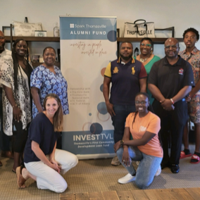Opinion: Behind the ArriveCan saga is a widespread scourge of the startup world

For a wide enough swath of startup owners, it seems that mastering entrepreneurship quickly is on their lists, but the shortcut is avoiding tasks they may have to learn or find uninteresting.Getty Images
Rob Csernyik is a contributing columnist for The Globe and Mail and a 2022 Michener-Deacon fellow.
If there were an ArriveCan guide to startups, lesson one would be “faking it is making it.” Two of three companies under scrutiny for their roles in bringing to life the underwhelming, overbudget app for customs and health information, lived the new entrepreneurial dream.
They won contracts using their big ideas and salesmanship. Then, as each had only two employees, they outsourced the hard work. The results of the government’s probe remain to be seen, but it’s safe to call it a cautionary tale, rather than an endorsement of this increasingly popular business strategy.
Still, a 2022 survey from global tech services company Commit suggested 21 per cent of U.S. startups outsourced software development, and the figure would rise to 36 per cent in 2023. As firms surveyed were already receiving seven-figure investments, outsourcing is not simply a strategy among the most resource-strapped.
Recently, while staying at a digital-nomad hostel in Bali, I heard similar approaches being taken by less cash-flush, sometimes one-person shops. They’re farming out work to low-cost jurisdictions or contractors on freelancer platforms such as Fiverr or Upwork – where quality of work can vary widely – to complete critical functions for their startups, including software development or user-experience design.
Today, it seems everybody wants to master countless hobbies and skills quickly – as seen in the online ads that promise quick paths to playing the guitar or piano. For a wide enough swath of startup owners, it seems that mastering entrepreneurship quickly is on their lists, but the shortcut is avoiding tasks they may have to learn or find uninteresting.
Given that, according to Statistics Canada, 55.3 per cent of Canadian businesses have one to four employees, many startup founders may consider outsourcing parts of their work. But that makes the risky proposition of entrepreneurship riskier and causes founders to miss out on unlocking value through the trial and error of work they actively do in house. It reminds me of the concept of “speedrunning,” where a video-game player tries to reach the end as quickly as possible. Entrepreneurship isn’t so easily hacked.
Though I understand why entrepreneurs might think they can get away with being an ideas person instead of putting in work, I don’t believe it’s true.
Yes, companies large and small outsource certain functions. But outsourcing tasks, such as payroll or customer support, differs from outsourcing core components of products or services in which founders are expected to have expertise. Further, a major consideration has always been quality. When speaking with entrepreneurs I met, who focused more on low cost than high quality, I heard horror stories about being scammed by improperly vetted freelancers or receiving poor work that cost extra to fix. This can make taking work in-house more compelling despite the potential of spending more effort and money upfront.
Experimenting with building apps, learning coding or website design, and gaining other knowledge through study or firsthand experience can pay dividends for owners of fledgling companies and offer directions to grow. This education is missed when fundamental work gets outsourced and remains lost in translation between business owners and temporary contractors for whom one person’s dream is simply another gig.
Entrepreneurs’ rags-to-riches stories often centre on the genius of an idea, but not the work involved or the mundane yet important challenges entrepreneurs face along the way. Getting hands dirty helps founders understand which business ideas are worth pursuing and throwing money after, in a way they may not notice if they farm the activities out.
In immersing themselves in the grunt work needed to build their company – technical or not – entrepreneurs spot problems, manage risks and uncover new ways to innovate their product offering. That deep bench of knowledge helps them make sharp pitches to future customers, employees and investors. It opens ideas to critique and exploration, which may not happen when a finished product is delivered by an outside party.
Entrepreneurs widely perceived as among the world’s most successful inspire cults of personality – think Elon Musk or Steve Jobs – where they are framed as creatives, disruptors and visionaries as if that’s the most important role entrepreneurs play. The terms all centre around one facet of their work and ignore the rest of what entrepreneurs do.
I suspect that for many entrepreneurs, there’s a greater urgency today to hang out a shingle. Some of it is the lower barrier to entry and the stories of regular people hitting it big, but there’s also anxieties about working jobs they hate and wanting to create greater financial security than their present career might afford. To secure this new life, entrepreneurs need more than a vision to execute. They have to put in the work to execute it themselves to maximize potential.



